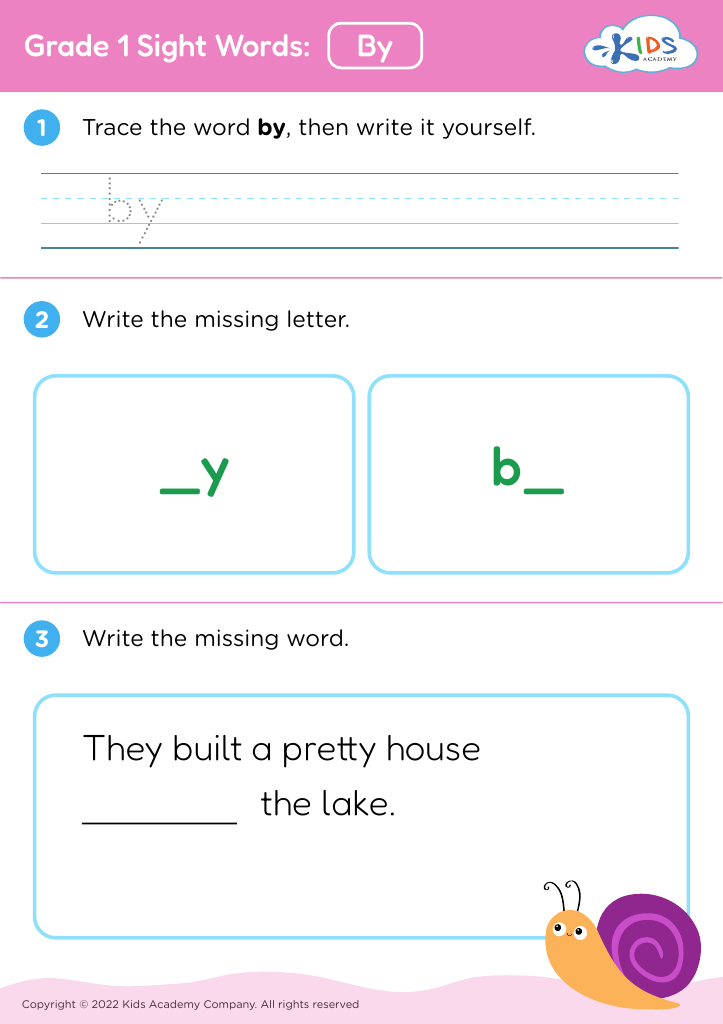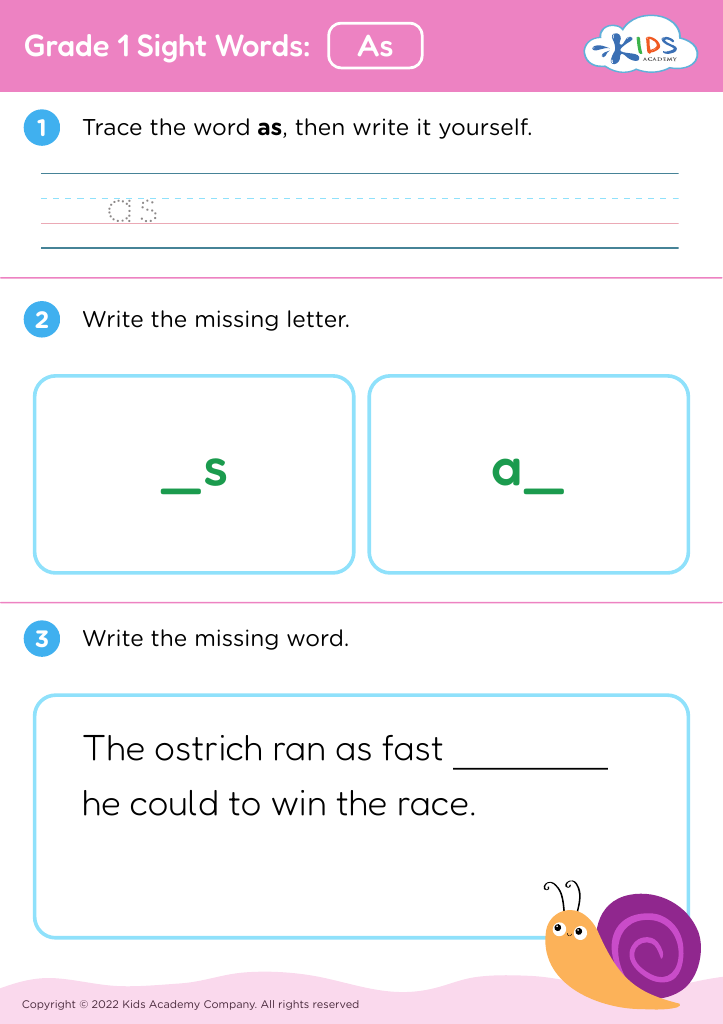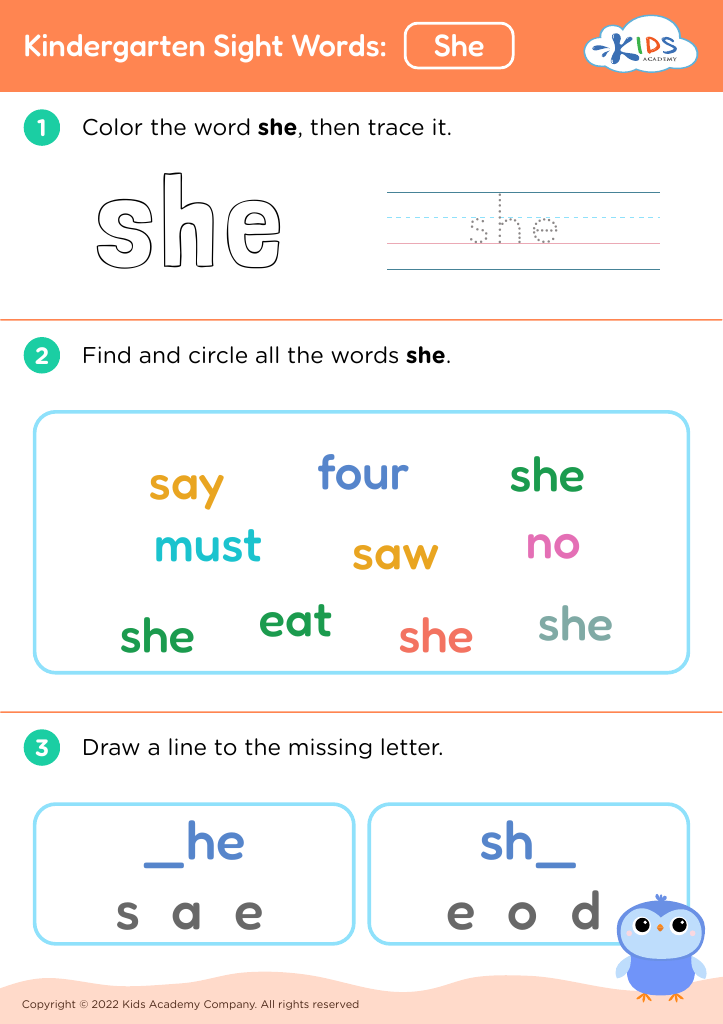Understanding symmetry Building Vocabulary Worksheets for Ages 6-7
4 filtered results
-
From - To
Discover our "Understanding Symmetry: Building Vocabulary Worksheets for Ages 6-7" designed to enhance your child's vocabulary while introducing foundational concepts of symmetry. Tailored for young learners, these engaging worksheets blend word-building exercises with visually stimulating symmetry activities, fostering cognitive development and language skills. Perfect for home or classroom use, our printable worksheets provide a fun and interactive way to support children's early education, encouraging them to identify symmetrical patterns and expand their vocabulary simultaneously. Unlock your child's potential with our expertly crafted resources, ensuring they grasp symmetry concepts while enjoying their learning journey.
Understanding symmetry and building vocabulary are crucial developmental tasks for children aged 6-7. For parents and teachers, fostering skills in these areas helps support cognitive and language development, laying a critical foundation for future learning.
Symmetry is more than just an aesthetic concept; it pertains to a child’s ability to recognize patterns, build spatial awareness, and develop mathematical skills. Encountering symmetry through play, art, and nature helps children learn to categorize, compare, and describe objects, which are key early math skills. Recognizing symmetry can also enhance problem-solving abilities, supporting future learning in STEM subjects.
Building vocabulary at this age is equally important. A strong vocabulary is a cornerstone for effective communication, reading comprehension, and academic success. As children encounter new words, they learn to express themselves more clearly and understand complex instructions and questions. Vocabulary building equips them with the language tools needed to describe their experiences, ask questions, and engage more deeply with stories and information.
Parents and teachers who focus on these areas can help children become more confident, articulate, and capable learners. Implementing activities like word games, storytelling, symmetry-focused art projects, and practical math exercises into daily routines can make learning engaging and enjoyable while cementing these foundational skills.











.jpg)













